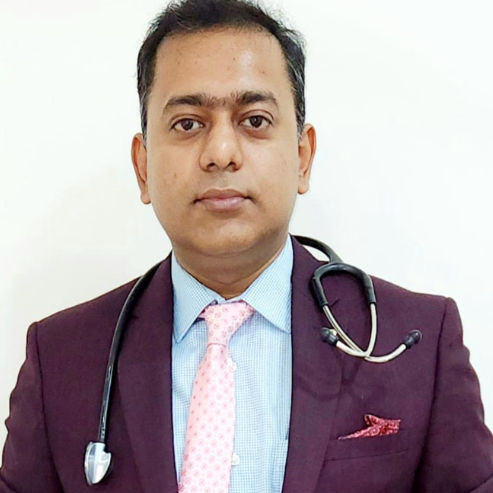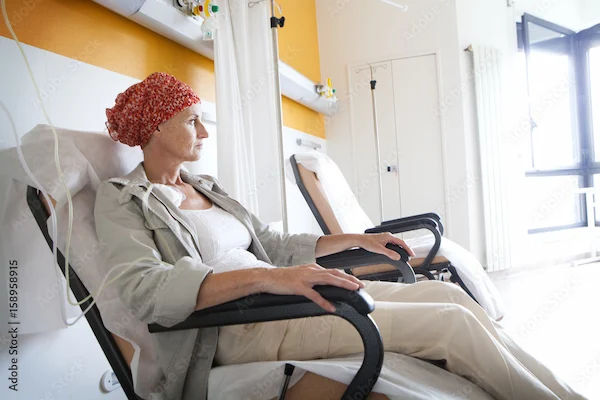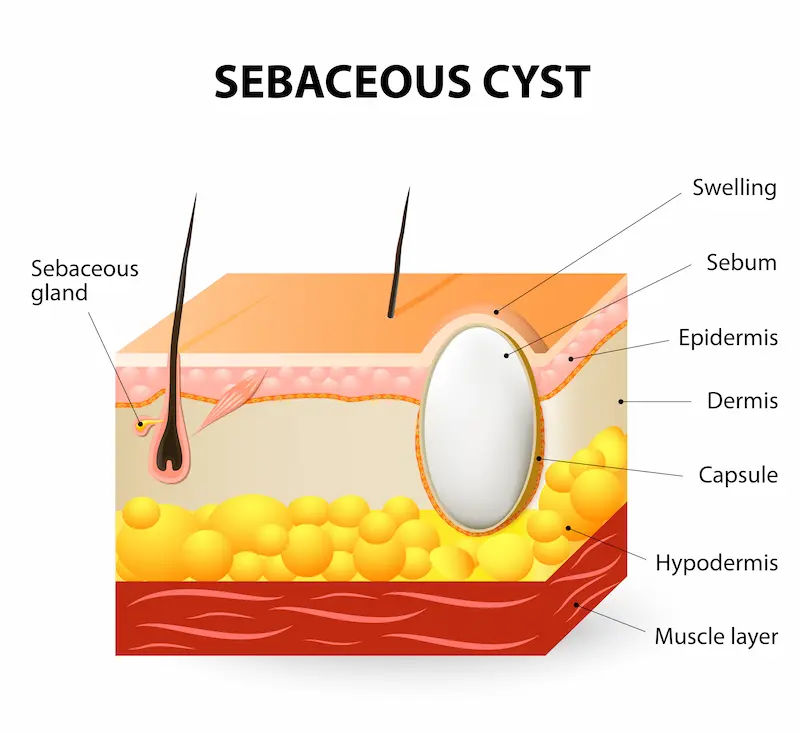Stage 1 Colon Cancer Symptoms Explained
Understand the subtle yet crucial Stage 1 colon cancer symptoms. Learn what signs to look for, how it's diagnosed at an early, highly treatable stage, and why early detection is vital for successful outcomes.

Written by Dr. J T Hema Pratima
Reviewed by Dr. Rohinipriyanka Pondugula MBBS
Last updated on 7th Aug, 2025

Finding out that you or a loved one has Stage 1 colon cancer can be overwhelming, but the good news is that early detection greatly improves treatment success. Understanding the symptoms, causes, and next steps can help you take control of your health.
What Is Stage 1 Colon Cancer?
Colon cancer develops in the large intestine (colon), which is part of the digestive system. Stage 1 means the cancer is in its earliest phase—it hasn’t spread beyond the inner layers of the colon or rectum.
At this stage, the tumour is small, and treatment is often highly effective. Many people with Stage 1 colon cancer recover fully after surgery, sometimes without needing chemotherapy.
Common Symptoms of Stage 1 Colon Cancer
Earlystage colon cancer may not always cause noticeable symptoms, which is why regular screenings are crucial. However, some people experience:
1. Changes in Bowel Habits
Diarrhea or constipation that lasts more than a few days
Narrow or pencil-thin stools (a possible sign of a blockage)
Feeling that your bowel doesn’t empty completely
2. Blood in Stool
Bright red or dark, tarry stools (indicating bleeding in the digestive tract)
Blood may not always be visible—sometimes detected in lab tests
3. Abdominal Discomfort
Cramps, bloating, or pain that doesn’t go away
A feeling of fullness even after passing stool
4. Unexplained Weight Loss or Fatigue
Losing weight without trying
Feeling unusually tired due to blood loss (anemia)
Note: These symptoms can also be caused by less serious conditions like hemorrhoids or infections. However, if they persist, it’s best to get checked by a doctor.
Consult Top Oncologist For personalised Tips
What Causes Stage 1 Colon Cancer?
While the exact cause isn’t always clear, certain factors increase the risk:
Age – Most cases occur in people over 50, but younger adults can also be affected.
Family History – A close relative with colon cancer raises your risk.
Lifestyle Factors – A diet high in processed meats, low in fiber, smoking, heavy alcohol use, and lack of exercise.
Medical Conditions – Inflammatory bowel diseases (like Crohn’s or ulcerative colitis) increase risk.
How Does Stage 1 Colon Cancer Affect Health?
If untreated, colon cancer can grow and spread to other organs (like the liver or lungs). However, Stage 1 is highly treatable because:
The tumor is small and hasn’t spread.
Surgery can often remove it completely.
Many patients don’t need chemotherapy at this stage.
The key is early detection—so don’t ignore persistent symptoms.
How to Manage and Improve Outcomes
Ways to manage and improve outcomes are:
1. Get Screened Regularly
Colonoscopy (recommended every 10 years starting at age 4550)
Stool tests (like FIT or FOBT) can detect hidden blood
2. Adopt a Healthy Lifestyle
Eat more fiber (fruits, vegetables, whole grains)
Limit processed meats and red meat
Exercise regularly (even walking helps)
Avoid smoking and excessive alcohol
3. Know Your Family History
If colon cancer runs in your family, you may need earlier or more frequent screenings.
4. Listen to Your Body
If you notice persistent symptoms, don’t delay—see a doctor.
When to See a Doctor?
Consult a healthcare provider if you experience:
Blood in stool
Persistent changes in bowel habits
Unexplained weight loss or fatigue
Ongoing abdominal pain
If you’re due for a screening or have concerns, Apollo 24|7 makes it easy to book a consultation or schedule a colonoscopy. Early detection saves lives!
Final Thoughts
Stage 1 colon cancer is highly treatable, but symptoms can be subtle. Pay attention to your body, get regular screenings, and maintain a healthy lifestyle. If you have any concerns, don’t hesitate to reach out to a doctor.
Your health matters—take the first step today.
Need to schedule a screening? Visit Apollo 24|7 to book an appointment with an expert.
Stay informed, stay healthy!
Consult Top Oncologist
Consult Top Oncologist For personalised Tips

Dr Sunita Samleti
Oncologist
18 Years • M.D. (Pathology)- TN Medical College, Mumbai University, Mumbai, Mar 2005 M.B.B.S. Grant Medical College, Mumbai University, Mumbai, Oct 1999
Chinagadila
Apollo Hospitals Health City Unit, Chinagadila

Dr Gowshikk Rajkumar
Oncologist
10 Years • MBBS, DMRT, DNB in Radiation oncology
Bengaluru
Apollo Clinic, JP nagar, Bengaluru

Dr. Sanchayan Mandal
Oncologist
17 Years • MBBS, DNB Raditherapy, DrNB Medical Oncology
East Midnapore
VIVEKANANDA SEBA SADAN, East Midnapore

Dr.sanchayan Mandal
Oncologist
17 Years • MBBS, DrNB( MEDICAL ONCOLOGY), DNB (RADIOTHERAPY),ECMO. PDCR. ASCO
Kolkata
Dr. Sanchayan Mandal Oncology Clinic, Kolkata

Dr. Gopal Kumar
Head, Neck and Thyroid Cancer Surgeon
15 Years • MBBS, MS , FARHNS ( Seoul, South Korea ), FGOLF ( MSKCC, New York )
Delhi
Apollo Hospitals Indraprastha, Delhi
(25+ Patients)
Consult Top Oncologist

Dr Sunita Samleti
Oncologist
18 Years • M.D. (Pathology)- TN Medical College, Mumbai University, Mumbai, Mar 2005 M.B.B.S. Grant Medical College, Mumbai University, Mumbai, Oct 1999
Chinagadila
Apollo Hospitals Health City Unit, Chinagadila

Dr Gowshikk Rajkumar
Oncologist
10 Years • MBBS, DMRT, DNB in Radiation oncology
Bengaluru
Apollo Clinic, JP nagar, Bengaluru

Dr. Sanchayan Mandal
Oncologist
17 Years • MBBS, DNB Raditherapy, DrNB Medical Oncology
East Midnapore
VIVEKANANDA SEBA SADAN, East Midnapore

Dr.sanchayan Mandal
Oncologist
17 Years • MBBS, DrNB( MEDICAL ONCOLOGY), DNB (RADIOTHERAPY),ECMO. PDCR. ASCO
Kolkata
Dr. Sanchayan Mandal Oncology Clinic, Kolkata

Dr. Gopal Kumar
Head, Neck and Thyroid Cancer Surgeon
15 Years • MBBS, MS , FARHNS ( Seoul, South Korea ), FGOLF ( MSKCC, New York )
Delhi
Apollo Hospitals Indraprastha, Delhi
(25+ Patients)



